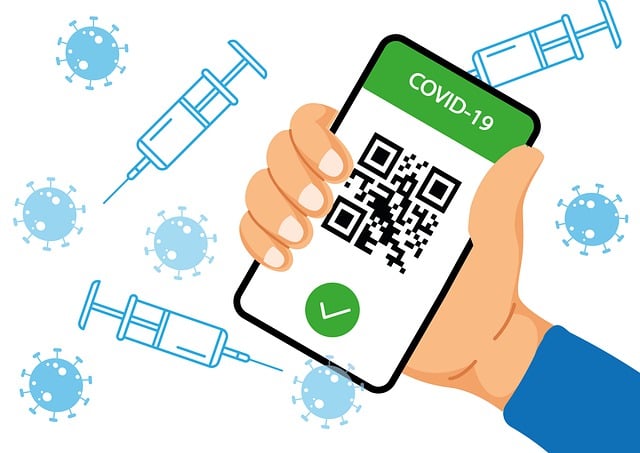TL;DR:
UK businesses must prioritize regulatory compliance across health, safety, data protection, and environmental sectors. Compliance certificates are crucial proof of adherence, fostering trust among customers and stakeholders. For cross-border operations, UK translation services ensure accurate translations of legal documents, preventing issues and fines. Professional guidance is vital for navigating complex regulations, especially post-Brexit trade with the EU. Best practices include rigorous quality control measures and expert translators for precise translations. Effective communication facilitated by translation services builds local partnerships and ensures compliance. Staying current with regulatory changes through digital tools and forums is key to success in the competitive UK market.
In the dynamic landscape of UK business, ensuring compliance with regulatory standards is not an option but a necessity. This comprehensive guide delves into the intricacies of navigating these requirements, from understanding foundational regulations to leveraging technology for simplification. We explore key industries mandated to comply and emphasize the pivotal role of certification, especially in legal documentation translations. Discover best practices, common pitfalls, and real-world case studies, empowering you to master compliance certificates and utilize expert translation services for seamless cross-border operations.
- Understanding UK Regulatory Standards: An Overview
- The Importance of Compliance Certificates in the UK
- Key Industries Requiring Compliance with UK Regulations
- How to Choose Reliable Translation Services for Legal Documentation
- Ensuring Accuracy: Best Practices for Translating Compliance Certificates
- Navigating Language Barriers in Cross-Border Business Operations
- Common Mistakes to Avoid During Certification Processes
- Case Studies: Successful Compliance Stories in the UK
- The Role of Technology in Simplifying Regulatory Compliance
- Staying Informed: Regular Updates and Resources for Business Owners
Understanding UK Regulatory Standards: An Overview

Understanding UK regulatory standards is essential for any business operating within its borders. These standards are comprehensive and cover a wide range of sectors, including health, safety, data protection, and environmental considerations. Compliance is not just about adhering to rules; it’s about ensuring that products and services meet the required quality and safety levels, protecting consumers, and maintaining fair competition in the market.
UK regulatory standards often require detailed record-keeping, regular audits, and specific certifications. For instance, compliance certificates are crucial for certain industries like food production, construction, and medical devices. Businesses may also need to avail of UK translation services to ensure that all documentation is accurate and accessible, especially when dealing with international clients or partners. This demonstrates a commitment to maintaining the highest standards across diverse markets.
The Importance of Compliance Certificates in the UK

Compliance certificates play a pivotal role in ensuring businesses operate within the stringent UK regulatory framework. These documents serve as a crucial link between organisations and the legal requirements they must adhere to, acting as a form of verification and assurance. In many sectors, obtaining and maintaining compliance certificates is not just a legal necessity but also a key component in fostering trust with customers, partners, and stakeholders.
For businesses offering goods or services across borders, including those seeking to export to the EU post-Brexit, professional translation services become indispensable. Accurate and reliable UK compliance certificate translations are essential to navigate language barriers and ensure that all documentation adheres to both local and international standards. This meticulous process is vital in preventing legal issues, fines, and reputational damage, thereby solidifying a company’s position in the competitive UK market.
Key Industries Requiring Compliance with UK Regulations

In the dynamic landscape of the United Kingdom, various industries operate under a stringent regulatory framework designed to ensure safety, quality, and ethical standards. Compliance with UK regulations is not just a legal requirement but also a cornerstone for business success and consumer trust. From healthcare and finance to manufacturing and technology, every sector has its unique set of rules and guidelines to follow. For businesses aiming to thrive in this environment, understanding these regulations and securing the necessary compliance certificates is paramount.
Key industries such as pharmaceuticals and medical devices must adhere to stringent Health and Safety Executive (HSE) standards, ensuring product safety and efficacy. The financial sector, including banking and insurance, operates under the watchful eye of the Financial Conduct Authority (FCA), focusing on ethical practices and consumer protection. Manufacturing companies need to comply with the Health & Safety at Work Act to maintain safe working conditions, while technology businesses must navigate data privacy regulations, often requiring UK translation services for international compliance. Each industry’s regulatory body provides comprehensive guidance, but navigating these requirements can be complex, underscoring the importance of expert advice and certification to stay ahead in the competitive UK market.
How to Choose Reliable Translation Services for Legal Documentation

When it comes to legal documentation, choosing the right translation service is paramount to ensuring compliance with UK regulatory standards. Look for providers that are not just linguistically proficient but also have a deep understanding of legal terminology and procedures. Reputable firms will employ translators who are native speakers and possess expertise in legal fields, guaranteeing both precision and contextually appropriate translations.
Additionally, verify if the translation services offer certified or sworn translations, which are often required for official documents. Compliance certificates from these services can attest to the authenticity and accuracy of the translated materials, meeting the stringent demands of UK regulatory bodies.
Ensuring Accuracy: Best Practices for Translating Compliance Certificates

Ensuring accuracy in the translation of compliance certificates is paramount when navigating the UK regulatory landscape. This is because certifications, such as those related to product safety, food hygiene, and environmental standards, carry significant legal weight. Engaging professional UK translation services that specialize in this domain is a strategic move. These experts have a deep understanding of both the source and target languages, ensuring precise communication while adhering to local nuances and terminology.
Best practices for translating compliance certificates involve rigorous quality control measures. This includes using certified translators with proven expertise in regulatory documentation, employing advanced translation memory tools to maintain consistency, and cross-referencing industry-specific glossaries. Additionally, proofreading by a second independent party further strengthens the accuracy of the translated documents. These stringent practices guarantee that the integrity of the original certification is preserved, thereby ensuring compliance with UK standards.
Navigating Language Barriers in Cross-Border Business Operations

Navigating language barriers in cross-border business operations is a crucial aspect of ensuring compliance with UK regulatory standards. Effective communication is essential for building strong relationships with local partners, understanding legal requirements, and accurately completing necessary documentation. Many businesses turn to professional translation services to overcome these challenges, especially when dealing with critical tasks such as obtaining compliance certificates.
UK translation services play a vital role in facilitating seamless cross-border transactions by providing accurate and culturally sensitive translations of regulatory documents, contracts, and other business materials. With a deep understanding of local laws and cultural nuances, these services ensure that communications are clear and effective, reducing the risk of costly mistakes or non-compliance. By leveraging high-quality translation support, businesses can confidently expand their operations into new markets while maintaining adherence to UK regulatory standards.
Common Mistakes to Avoid During Certification Processes

Many organisations, especially those operating in highly regulated industries, often make common mistakes during certification processes that can delay or even jeopardise their compliance with UK regulatory standards. One of the primary issues is inadequate preparation. Companies sometimes underestimate the scope of what’s required for certification, leading to last-minute rushes and suboptimal outcomes. This is where professional guidance and thorough understanding of the regulations are crucial.
Another frequent mistake is neglecting the importance of accurate documentation and record-keeping. Compliance certificates in the UK require detailed records supporting every claim made during the application process. Inaccurate or incomplete documentation can result in delays, fines, or even rejection of the certification application. Moreover, with many regulatory standards now requiring a UK translation service for international documents, overlooking this aspect can introduce further complexities and errors.
Case Studies: Successful Compliance Stories in the UK

In the dynamic landscape of UK business, ensuring compliance with regulatory standards is no longer an option but a necessity. Case studies of successful compliance stories across various sectors highlight the transformative power of adhering to stringent regulations. For instance, many manufacturing companies in the UK have adopted cutting-edge technologies and robust quality control measures, facilitated by expert UK translation services for safety data sheets and other critical documentation, to meet Health and Safety Executive (HSE) standards, significantly enhancing their operational efficiency and public safety.
Similarly, financial institutions have leveraged advanced risk management strategies and enhanced internal controls to navigate the complex regulatory environment, fostering trust among stakeholders. These success stories demonstrate that compliance is not just about meeting legal requirements but also about driving business excellence, protecting consumers, and ensuring sustained growth in the UK market. Effective UK translation services play a pivotal role in this process by ensuring accurate communication of regulatory expectations and facilitating global business operations.
The Role of Technology in Simplifying Regulatory Compliance

In today’s digital era, technology plays a pivotal role in simplifying regulatory compliance for businesses operating within the UK. Automated systems and digital platforms have streamlined processes that were once time-consuming and manual. For instance, online compliance certificates can now be easily generated and shared, replacing traditional paper-based documentation. This not only saves time but also reduces errors and ensures a more efficient tracking system.
Moreover, advanced translation services have made it simpler for UK-based businesses with international operations to navigate regulatory hurdles. Accurate and prompt UK translation services ensure that all documentation, including compliance certificates, is translated into English, adhering to the nuances of local regulations. This is particularly beneficial for non-English speaking companies entering the UK market, ensuring smooth sailing through the compliance process from the outset.
Staying Informed: Regular Updates and Resources for Business Owners

Staying on top of regulatory changes is a crucial aspect of running a successful business in the UK. Business owners must embrace a proactive approach to compliance, ensuring they are aware of any new laws or amendments that could impact their operations. Regular updates from government bodies and industry regulators are essential resources for staying informed. By subscribing to relevant newsletters, following official accounts on social media platforms, and actively participating in sector-specific forums, business leaders can receive timely notifications about regulatory developments.
In today’s digital era, many UK regulatory bodies provide dedicated online portals offering comprehensive guides, webinars, and compliance certificates. These resources simplify the process of understanding complex regulations and their practical implications for businesses. Additionally, reputable translation services play a vital role in ensuring that international companies operating in the UK can access and comprehend local legal requirements, facilitating seamless integration into the British market.
In navigating the complex landscape of UK regulatory standards, understanding the importance of compliance certificates is paramount. This article has explored various aspects crucial to success, from recognizing key industries requiring adherence to regulations to providing insights on choosing reliable translation services for legal documentation. By emphasizing best practices in ensuring accuracy during certification processes and highlighting common mistakes to avoid, we’ve offered practical guidance. Furthermore, case studies have showcased the positive impact of successful compliance stories within the UK. As businesses venture across borders, understanding language barriers and leveraging technology will be instrumental in simplifying regulatory compliance. Staying informed through regular updates and utilizing available resources ensures that navigating these standards remains a strategic advantage rather than an obstacle.
